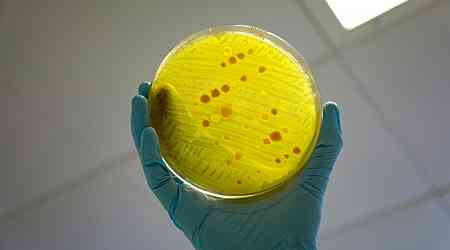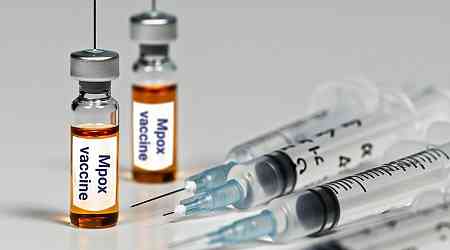- The report examines access gaps for tools that support sexual and reproductive health, calling for a concerted effort to address market gaps and incentivize the development and introduction of affordable, rapid point-of-care diagnostics for gonorrhea in response to rising infections and antimicrobial resistance.
- Over 82 million gonorrhea cases occur annually, disproportionately affecting low- and middle-income countries. Drug-resistant strains threaten to render treatments ineffective, increasing the urgency for improved diagnostics and treatment options.
- Recent advancements in point-of-care diagnostic technologies, including molecular tests, offer improved accuracy and same-day treatment, crucial for controlling gonorrhea and limiting drug resistance, but high costs and limited infrastructure in low- and middle-income countries prevent access.
- The report highlights opportunities for intervention in under-resourced areas, including market-shaping strategies, product development support, and strengthening integration of diagnostics within reproductive, maternal, and HIV health care services.
Geneva - As world leaders gather in New York for the United Nations High-Level Meeting on Antimicrobial Resistance today, a new Unitaid report calls for a concerted global effort to introduce accurate and affordable diagnostics to combat rising gonorrhea infections and antimicrobial resistance. The report details ways to address market gaps and incentivize the development and introduction of affordable diagnostic solutions in low- and middle-income countries.
Gonorrhea is becoming a more prominent global health concern, with more than 82 million new cases reported annually, disproportionately affecting under-resourced areas. Despite the World Health Organization's goal to reduce gonorrhea infections by 90% by 2030, the global response is falling short, largely due to the lack of affordable and accessible diagnostic tools and an overreliance on syndromic management. Many sexually transmitted infection (STI) programs suffer from years of underinvestment, and as a result, countries often lack surveillance data, strategies, and up-to-date guidelines. These challenges are further compounded by the rise of drug-resistant strains, which threaten to make current treatments ineffective.
A major issue is the high number of missed gonorrhea infections. This is a significant concern for women, as cases are often asymptomatic and more difficult to identify. Untreated infections can lead to pelvic inflammatory disease, infertility, ectopic pregnancy, and increased risk of HIV transmission. Gonorrhea can be passed to babies during birth, potentially causing severe eye infections and blindness if untreated.
"Better testing for STIs fits directly with Unitaid's commitment to women's health - including optimized maternal care as part of vertical (mother-to-child) transmission elimination programs for HIV, syphilis, and hepatitis B," said Janet Ginnard, Unitaid's Director of Strategy. "Advancing women's health is fundamental to Unitaid's strategy and we see significant potential for impact through integrated, person-centered care approaches."
The report, titled "Gonorrhea point-of-care diagnostics technology and market landscape", highlights promising advances in diagnostic technology, including over 75 point-of-care tests currently in development. These innovations, including rapid molecular tests, have the potential to enable same-day diagnosis and treatment, which is critical to reducing transmission and managing antimicrobial resistance. However, the report emphasizes that market challenges, including high costs and limited infrastructure, prevent widespread adoption in low- and middle-income countries.
"As gonorrhea becomes increasingly resistant to antibiotics, strengthening diagnostic capacity is crucial to ensuring timely treatment and preventing further spread," said Kelsey Barrett, Unitaid's Technical Manager for Maternal and Child Health. "Early work to implement testing will provide valuable evidence and experience to build demand and guide countries on feasible and cost-effective ways to introduce gonorrhea testing and improve health outcomes, particularly for vulnerable populations."
Unitaid remains committed to driving innovation and market access for essential health tools across low- and middle-income countries and this report provides a roadmap for improving the diagnosis and management of gonorrhea - a potentially transformative advance in the global response to sexually transmitted infections and AMR.
About Unitaid's work fighting antimicrobial resistance
AMR is one of the top 10 threats facing humanity, according to the WHO. We must urgently address the growing threat of AMR while also ensuring people get the right treatment at the right time - which means increasing access to medicines and diagnostics that can support good stewardship and people-centered care. Unitaid is collaborating with partners to introduce affordable, accessible new tools against pathogens that are already drug-resistant; support health workers to stop the overuse and misuse of antimicrobials to prevent new resistance from emerging; address some of the main diseases impacted by AMR, particularly HIV, tuberculosis and malaria; and develop tools to better track and respond to AMR. Read more about our approach in our "Antimicrobial resistance" issue brief.
About Unitaid's work in women's and children's health
At Unitaid, we take a holistic approach to women's and children's health. We address some of the starkest disparities in maternal health while looking beyond pregnancy to ensure women and children living in low- and middle-income countries can get the care they need at all stages of life. Our work targets the main drivers of maternal death and infant mortality - and accelerates access to high-quality, affordable screening tools, treatments and preventive medicines for all. In this context, we also aim to build a sustainable supply of medical oxygen, a critical treatment tool for saving the lives of women and infants in respiratory distress. Read more about our approach in our "Women's and children's health" issue brief.

































